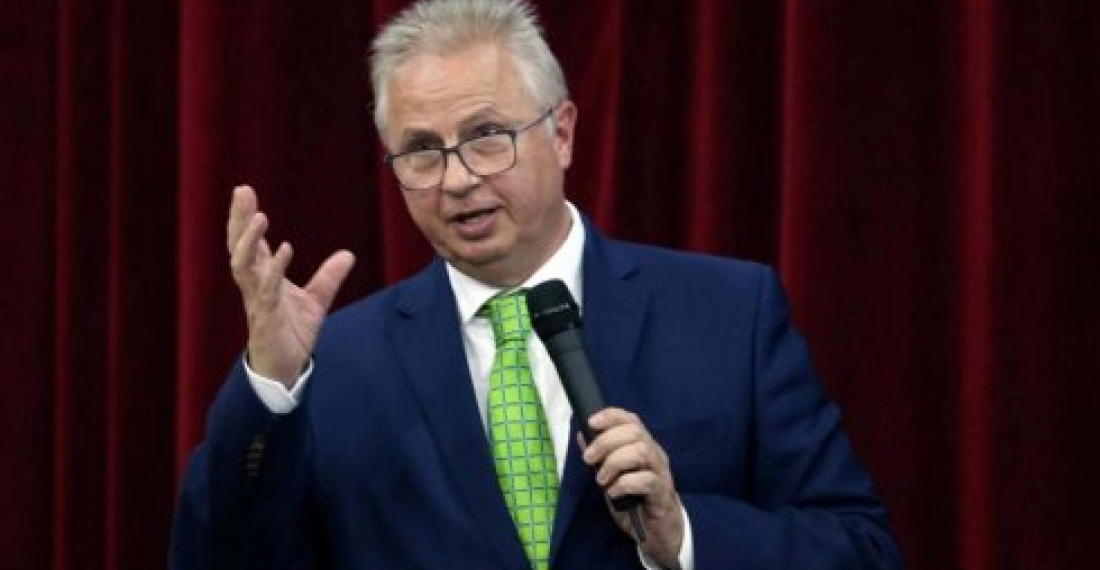The President Designate of the European Commission, Ursula von der Leyen has set out her vision for Europe's neighbourhood in a letter she has sent to the person she has nominated to take on the role of Commisssioner for Enlargement and Neighbourhood Policy.
The letter to Commissioner Designate László Trócsányi, published on the European Commission website, deals with relations with the Balkan countries, Turkey, the six members of the Eastern partnership, and Europe's neighbours to the South.
As regards the Eastern Partnership countries, the letter states:
Taking the Eastern Partnership to the next level In our Eastern neighbourhood, you will strengthen relations with the six countries in the Eastern Partnership.
Based on the ongoing consultation, you should put forward a new set of long-term policy objectives for the Eastern Partnership by mid 2020. In doing so, you should reflect on future frameworks of engagement that are both innovative and realistic. They should reflect the political and economic choices of our partners and build on their current obligations, while fully respecting the Union’s own capacities and interests.
In parallel, you should focus on the outstanding issues from the current objectives, notably on the rule of law, the fight against corruption and the role of an independent media and civil society.
You will seek to accelerate the implementation of the Association Agreements and Deep and Comprehensive Free Trade Areas with Ukraine, Georgia and Moldova, and look to deepen sectoral cooperation where appropriate. You should make full use of the dedicated Support Group for Ukraine to support reforms and promote the European Union’s steadfast commitment to the country’s territorial integrity.
The letter also indicates the thinking of the new Commission President on Turkey. In it she says
You will work closely with High Representative/Vice-President on relations with Turkey. Turkey’s accession negotiations have effectively come to a standstill, and no further chapters can be considered for opening or closing, as Turkey continues to move away from the European Union. It does, however, remain a key partner, with common challenges and interests such as on security, migration, economy or trade.
In her letter von der Leyen reaffirms the will to keep a membership perspective open to the Balkan countries, and asks for a reassessment of the agenda in the relations with each of the neighbouring countries to the South.
You can read the full letter of Commission president Ursula von der Leyen to László Trócsányi here
Many media outlets have identified László Trócsányi as one of the most controversial nominees in Mrs von der Leyen Commission. The Hungarian politician, who served as Minister of Justice in the government of prime minister Orban in Hungary prior to being elected as an MEP in June, will face questions in the European Parliament, which will also have to approve the nomination, before he takes office with the rest of the Commission on 1 November.
source: commonspace.eu
photo: László Trócsányi (archive picture)






